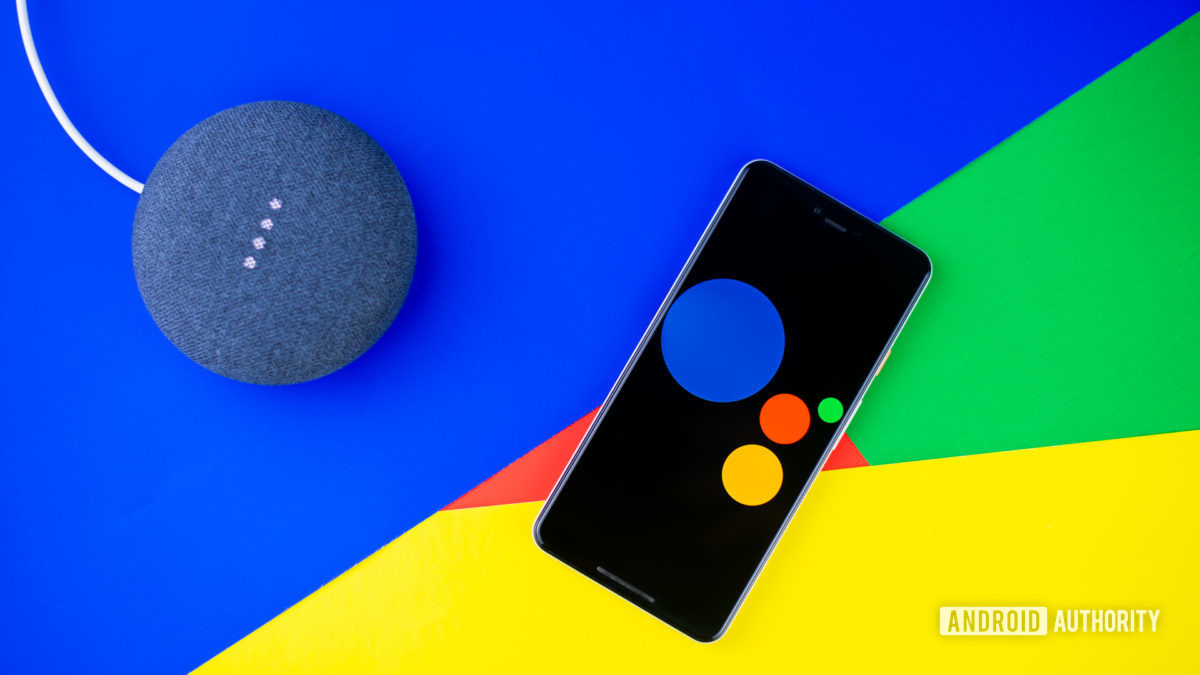
- Google representatives apparently told a government panel that the Assistant records user audio even when it’s not summoned.
- The company also reiterated that its employees sometimes listen to Google Assistant conversations.
Update: July 1, 2021 (10:44 AM ET): Google has responded to an email query from Android Authority about what the company stated in its deposition (see original article below) and how the Google Assistant records user audio.
“Since this was a closed-door hearing, we can’t comment on stories based on unnamed sources but I am sharing all the details that can help you understand how Assistant works, and this should clarify any doubts that you may have,” a company representative wrote in an email.
Google directed us to a Safety Center link for the Google Assistant. In it, the company states that the Google Assistant waits in standby mode until it’s activated by a user.
Google also writes that “in standby mode, the device processes short snippets of audio (a few seconds) to detect an activation – like when you say Hey Google. If no activation is detected, then those audio snippets won’t be sent or saved to Google.”
Google also states that when the Assistant detects its wake word “the recording can include a few seconds before you activate your Assistant to catch your request at the right time.”
Original article: July 1, 2021 (3:38 AM ET): Google has reportedly admitted that the Google Assistant records user audio even when it’s not triggered by the “Ok Google” hotword.
According to IndiaToday‘s sources, Google representatives apparently told a government panel in India that its employees listen to recordings of conversations between users and the Google Assistant. While this is something Google has previously accepted, sources also told the publication that the company admitted that its AI assistant sometimes records audio on a smartphone or a smart speaker even when it’s not summoned by the user.
Google earlier claimed that its employees listen to recordings of what users say to the Google Assistant to improve its speech recognition technology for different languages. The company said that only a fraction of the audio is accessible to its employees and that they don’t listen to sensitive conversations. However, there’s no information about how Google distinguishes between sensitive and general conversations. Also, in 2019, one of Google’s language reviewers had leaked confidential audio data to a Belgian news outlet.
Related: Google Assistant guide – Make the most of your virtual assistant
Moreover, Google didn’t explain why Assistant records user audio when it’s not triggered by a voice command. We know that the digital helper is always listening for its trigger word, just like Amazon’s Alexa, but our understanding till now was that it only records conversations after it hears “Hey Google” or “OK Google.”
Google’s privacy policy also states, “Occasionally, the Assistant will activate when you didn’t intend it to because it incorrectly detected that you wanted its help (like by a noise that sounds like “Hey, Google”). If that happens, just say Hey Google, that wasn’t for you, and the Assistant will delete the last thing it sent to Google.” There’s no wording in the policy about other instances of unprovoked recordings by the Assistant. It’s unclear if Google was referring to the accidental recordings or if it meant that Assistant records user audio even when it’s not accidentally triggered. If it’s the latter, it opens up a pandora’s box of privacy issues.
Commenting on the matter, a member of the Indian panel investigating Google said, “In its terms and conditions, Google states clearly that audio recordings between users and their Google smart speakers and Google Assistant devices are recorded and stored. But the terms do not mention that its employees can listen to excerpts from these recordings. Also, Google, in its privacy policy, says that it will share personal information outside of Google when it has users’ consent. This is a serious breach of user privacy.”
Another senior official from India’s Ministry of Electronics and Information Technology said, “The government is looking into the issue of companies like Google not deleting the stored data as a rule and keeping the transcripts until a user manually deletes the information.”
Remember, you can delete the conversations you have with the Google Assistant at any time. However, it’s unclear if this data includes the Assistant recordings when it’s allegedly listening in to users in secret, by accident or not.
We’ve reached out to Google for clarification on the original report and how Google handles Assistant recordings.